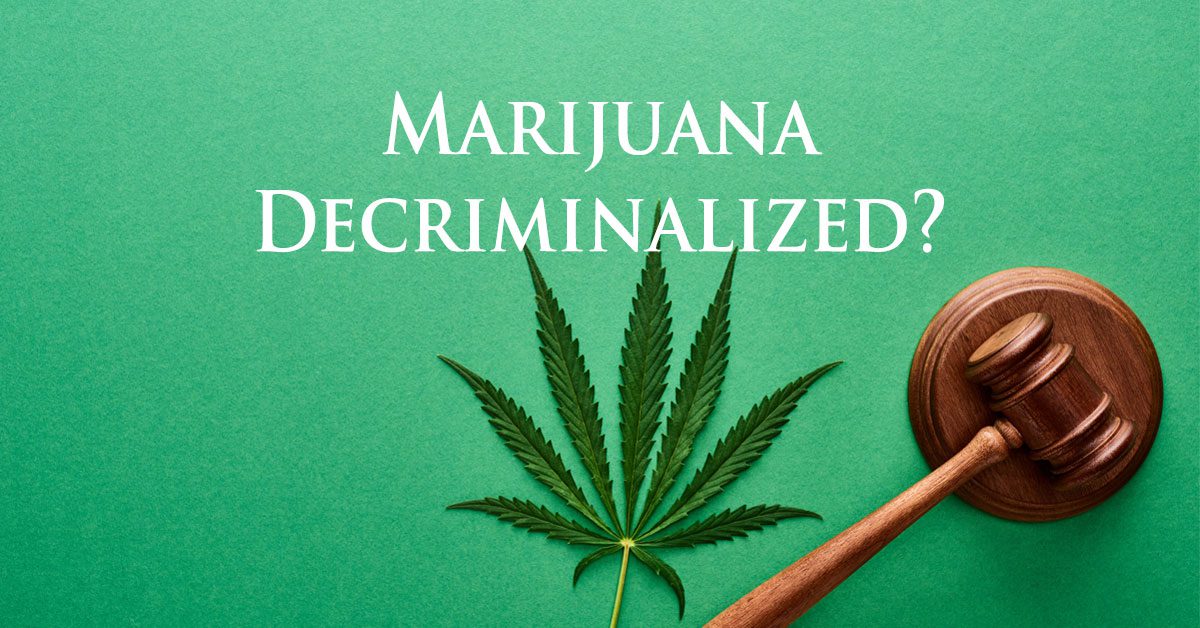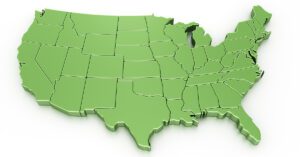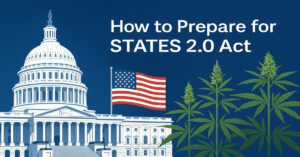Marijuana decriminalization supporters got a boost in the House on Wednesday when that body’s Judiciary Committee passed a bill that could decriminalize the drug at the federal level.
This would clear the way for states to tailor more of their own regulations on the subject. This article is written by our cannabis compliance team as an analysis on these changes and what this means for the future of cannabis legislation.
MORE Act (Marijuana Opportunity Reinvestment and Expungement Act of 2019)
Called the MORE Act (Marijuana Opportunity Reinvestment and Expungement Act of 2019), this bill would defang current federal prohibitions on the drug by removing it from the list of controlled substances, as well as expunge the criminal records of those who’ve been arrested or convicted for marijuana-related offenses. It would also create a framework for allocating resources to assist communities harmed by the decades-long “war on drugs.”
Rep. Jerrold Nadler, D-N.Y., introduced the legislation, which was co-sponsored by over 50 additional lawmakers. The committee handily passed the measure, 24-10.
Beyond the aforementioned actions, the MORE Act would establish a Cannabis Justice Office, which would introduce a sales tax of 5% on cannabis sales in states that choose to legalize it.
“These steps are long overdue. For far too long, we have treated marijuana as a criminal justice problem instead of a matter of personal choice and public health.” – Rep. Jerrold Nadler
Speaking on the subject during the bill’s markup, Nadler said, “These steps are long overdue. For far too long, we have treated marijuana as a criminal justice problem instead of a matter of personal choice and public health…Federal action on this issue would follow growing recognition in the states that the status quo is unacceptable.” He went on to note that 33 states and the District of Columbia have legalized medical cannabis, implying a need for the federal government to catch up with the nation’s evolving understanding of the matter.
Congress Committee Favoring Liberal Marijuana Laws
Despite the changing winds, Wednesday marked the first time a committee of Congress has passed a bill favoring liberalization of marijuana laws at the federal level, and it will still have to pass in the House proper before moving on to Mitch McConnell’s (R-KY) Senate, where, it’s likely to hit a wall.
Currently, marijuana is considered a Schedule I substance under the federal drug control scheme, putting it alongside heroin, LSD, ecstasy, and peyote. “We need to catch up (with public sentiment),” Nadler stated, “because of public support and because it is the right thing to do.”
Democratic views on the subject vary. Among current presidential hopefuls, Nadler’s moderate approach of federal decriminalization and state-level rules-setting finds a sympathetic ear with former Vice President Joe Biden, while more progressive 2020 contenders, including Elizabeth Warren (D-MA) and Bernie Sanders (D-VT), have called for commanding reforms in how the entire criminal justice system handles marijuana convictions and lawmaking.
Don’t Get Too Excited, Yet.
Activists might not want to get their hopes too high just yet, however. This isn’t the first time similar legislation has made its way to the Senate. Majority Leader McConnell.
In the past he has owned up to his reputation as a stonewaller of Democratic legislation with pride, told reporters in December he doesn’t “have any (plans) to endorse the legalization of marijuana,” although late last year he did approve a sweeping farm bill that legalized commercial hemp.While that did not address psychoactive cannabis, it was seen as an incremental step forward, as hemp legalization had long been a goal of marijuana activists in helping normalize the commercial prospects of the cannabis plant.
Furthermore, even if the Senate passed this bill, it could die on the desk of President Donald Trump, who has vocally opposed marijuana legalization in the past. According to Health and Human Services Secretary Alex Azar, the president donated a portion of his salary in 2019 to a campaign disseminating a message of the negative effects of marijuana use.
Do you have more questions? Ask our compliance team!
Related Reading





